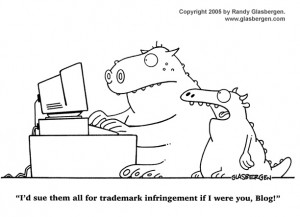Reference checks are an important step in the hiring process of many companies. They are extremely common, and it is likely you will be asked for the names of several references before you are made a job offer. There are a few mistakes job seekers make with their references that are easily avoidable.
 Reference checks are an important step in the hiring process of many companies. They are extremely common, and it is likely you will be asked for the names of several references before you are made a job offer. There are a few mistakes job seekers make with their references that are easily avoidable.
Reference checks are an important step in the hiring process of many companies. They are extremely common, and it is likely you will be asked for the names of several references before you are made a job offer. There are a few mistakes job seekers make with their references that are easily avoidable.
References on Your Resume
Some job seekers list their references directly on their resume. These can be included at the end in a reference section, of throughout the resume under each job. In either case, this is a mistake.
You should not list your references on your resume. By placing your references on your resume, you are inviting anyone that reads your resume to contact the people you list. As an executive recruiter, I’ve read articles from several sources that advise recruiters to search resumes for references to recruit. If you are posting your resume on online, with references attached, there’s a good chance a recruiter will use the information you give them.
There isn’t a benefit to listing your references on your resume. To land an interview, you need to demonstrate your skills, experience and track record of success. Listing a former supervisor will not help in this capacity. The hiring manager will make their decision to interview you long before they invest the time to contact a reference.
References Available Upon Request
It is common to see the phrase “References Available Upon Request” at the bottom of a resume. This isn’t a bad thing, but it’s completely unnecessary. If a company requires reference checks in its process, it is going to ask for them whether you write this or not. A company will expect you to be able to provide references.
Go ahead and leave the “References Available Upon Request” off your resume. Save the space for information that will make a difference in landing an interview.
Choice of References
When you provide references, try to select former supervisors and try to select individuals from your recent work history. The best reference is your most recent direct supervisor. This individual should have a similar perspective as the manager hiring you. After this, past supervisors, make good references. References from more recent positions are more valuable than older ones.
After direct supervisors, individuals at the same level as your direct supervisor, but in a different functional area, can provide helpful references. A senior executive several levels above you is also a good reference, but usually not as good as a direct supervisor. A direct supervisor has much more contact and time directly observing your performance than senior level people. This allows the supervisor to describe your performance in more detail.
Peer references are also good to have, but are less valued by employers. It is easier to pick and choose a peer that you are friends with that you know will give a very positive reference. Hiring managers often discount these references.
Personal references are rarely valuable. Friends, neighbors, ministers, teachers and other individuals may be able to describe your personality, values and background. They rarely can provide an assessment of your performance and potential in a specific job.
Notifying Your References
When you select your references, you should let the reference know that you would like to use them as a reference. Let them know you are interviewing for a job and they may be contacted. Describe to them why you are looking for a job, the type of positions you are seeking and the type of companies you are pursuing.
Information to Provide With Each
Reference
- Full Name
- Current Title and Employer
- Title and Employer when the reference
worked with you
- Your title and reporting relationship to the reference when you worked with them
- Phone Number (preferably a cell phone)
- Best Time to Call
- Email Address
Number of References
You should have at a minimum three references. Don’t expect a company to check every reference. They may only check a few. The company may request additional references, especially if you do not include any former supervisors.
A great selection of references would include two direct supervisors, a exec above the level of your supervisor and a couple peers. A list of five references like this should satisfy an employer.
Letters of Recommendation
A letter of recommendation is a reference that is written and given to you so that you can provide it to a prospective employer. Recommendations are good to have, but do not eliminate the desire of companies to speak with your references directly. They may have questions that the letter does not address, or just want to hear from the reference directly. In either case, you may still be asked for contact information of someone that provided a recommendation.
An option for recommendations that is becoming more common is to obtain recommendations on LinkedIn. When a former boss or coworker writes a recommendation on LinkedIn, it can be viewed by anyone (if you have your profile set to a public status), and can be beneficial in your search.
Other Considerations
If you are employed and your employer does not know you are considering a change, you many not want your current employer to be contacted. This is usually not a problem and is understood by companies. Make sure you provide references from the position immediately prior to your current position. If you have been with the same company for a long time, you should try to get one or more references from your current employer. In this case, it is easier to get peers and this should be ok. Just try to get a supervisor from sometime in your work history.
References are usually requested around the time of the first face-to-face interview, often immediately following the interview.
You may have a past employer that will only verify employment dates. Companies do this to avoid any legal liability that may arise from providing a negative reference. They decide to avoid references all together. If this is an employer’s policy, there is little you can do to change their stance. A prospective employer should understand. Just make sure you have selection of references from other employers.
![Fotolia_118013_XS[1]](https://blog.palladiancr.com/wp-content/uploads/2009/03/Fotolia_118013_XS1.jpg) A month ago, I attended a job fair. As an executive recruiter, my primary goal at job fairs is to build my database. I can never be sure what my clients are going to want in the future, so I need to cover all the bases.
A month ago, I attended a job fair. As an executive recruiter, my primary goal at job fairs is to build my database. I can never be sure what my clients are going to want in the future, so I need to cover all the bases.




